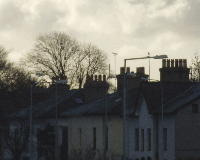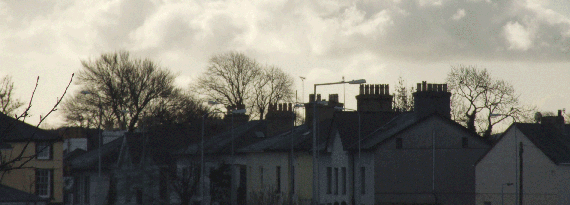Auctioning off housing association stock is seen as a cash-efficient way to improve public housing – and as a socially destabilising trend. David Thame dissects the debate
Until the shadow attorney-general and Islington South & Finsbury MP Emily Thornberry got into a spot of political bother last month, the fact that housing associations sold properties at auction wasn’t widely known outside the public housing sector.
In the furore after Thornberry’s resignation from the shadow cabinet following a much-criticised Twitter post, it turned out she owned property bought at auction from local housing associations. The Daily Mail promptly accused her of being a champagne socialist.
Ms Thornberry bought a £572,000 property in Clerkenwell, part of her constituency, from a housing association. Critics suggested that buying the house reduced the stock of social housing, while making a private profit from a public asset. Both sat ill with Labour policies, they said.
The extent of housing association disposals by auction is hard to know: it certainly runs into many thousands of lots each year. Inspired by new asset management policies – and by the 2001 standard for “decent” housing – they have been offloading unlet properties (see Disposals, below).
Sales tend to be concentrated in areas where housing stock is older and needs more expensive refurbishment – and that means, on the whole, in the areas of greatest housing need.
Merseyside is one such area. And it is here that the debate about housing association auctions is at its fiercest.
Merseyside-based Riverside Housing Association is one of the largest social housing providers in the UK. It has been running an asset-disposal programme for the past four years. In 2013-14 the association disposed of nearly 750 homes, generating a surplus of about £15m for re-investment.
Local auctioneer Sutton Kersh regularly offers properties on behalf of housing associations across Merseyside – including Riverside. Recent sales for Riverside include 38 Orwell Road, Liverpool, sold for £39,500 off a guide price of £25,000, and 3 Monastery Road, Liverpool, sold for £52,000 off a guide of £35,000.
Lots are typically part of large portfolios normally offered for sale first by private treaty and then by auction. The stock tends to be in secondary locations and requires repair and modernisation. However, Sutton Kersh head of auctions Cathy Holt says prices are very realistic and often sell for above the reserve to both owner-occupiers and investors.
Holt explains: “Properties go to an estate agent for six months at a discounted market value with the aim of attracting owner-occupiers rather than investors, but if there are no offers and no sale, then they go to auction where, of course, investors are likely to pick it off.
“It’s mainly two- or three-bedroom terraced properties, not in the best locations, and they tend to need work doing.”
Sutton Kersh sold about 200 housing association properties last year for three main housing association clients. And they are often the star lots at residential auctions.
“They are very realistically priced, they tend to sell about the reserve price, and they create a good atmosphere in the auction room because they are cheap. They have never failed to sell – so we are very positive about them,” Holt says.
Although auction sales help improve social housing stock – and are a money-spinner for vendors – there are growing voices of doubt. Ann O’Byrne is a Liverpool city councillor and assistant mayor. She is also the city’s cabinet member for housing. But she is a sceptic about the policy of auction sales.
“Housing associations are social housing providers, and the word ‘social’ is important. They are selling older properties that are part of stable communities, but by selling them they destabilise the community,” she says.
“Auctions mean the likelihood of sale to investors, meaning more temporary residents, and housing associations should be supporting communities, trying to create stable, vibrant communities. By selling off houses at auction like this, are they carrying out their core functions? Their core principles are about more than just bricks and mortar.”
In its defence, James Hill, Riverside’s head of asset management, says his company has an active asset management strategy that includes a small number of sales at auction. “Our strategy is focused on rationalising our housing stock through a variety of means to make sure tenants receive a high standard of locally based services and the business achieves best value.”
The housing association establishment is unmoved. Kathleen Kelly, assistant director of policy and research at the National Housing Federation, the body which brings together housing associations, says: “Most housing associations have an asset management strategy which they will use to understand which properties are uneconomical to manage or maintain. Sometimes this may mean swapping or selling stock to housing associations in neighbouring areas to improve efficiency.
“Other properties may be too costly for a family to afford the heating bills and be uneconomical to bring up to standard. The important thing to note is that the strategy will involve disposing of a small number properties to use the proceeds to invest in affordable, more energy-efficient homes in the right places.”
Auction sales will no doubt continue: there could be 20,000 more housing association homes suitable for sale, according to some estimates. Perhaps considerably more, if local authority homes are included. Whether they represent a bargain – and if so, for whom – will become an more of a political issue.
Disposals
In 2012 the Homes & Communities Agency eased regulations that effectively stalled housing association auction sales. The move made it possible to dispose of around 70,000 long-term empty public sector homes.
The aim was to boost the revenue of local councils and housing associations and to improve the supply of decent houses. Auctioned-off houses would be improved by their new private owners, while income from sales would allow social housing providers to build newer, better houses.
The decent homes standard was established in 2001 and applies to all social housing. It says that in order to be “decent” a home should be warm, weatherproof and have reasonably modern facilities. The latest figures show there are 145,900 non-decent local authority homes across England, down by 21% on 2013. The figure is expected to fall to 90,000 by 2019.












